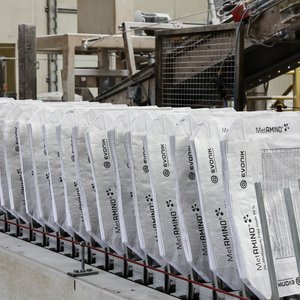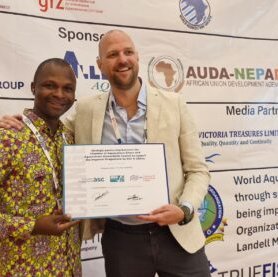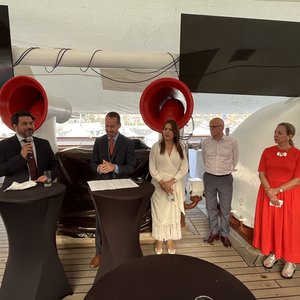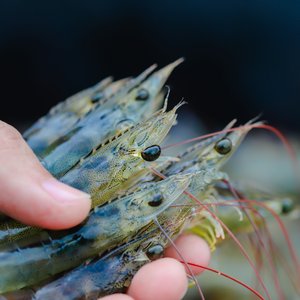The Irish Ombudsman office has opened an investigation into alleged maladministration by the Department of Agriculture during the recent EU investigation into sea lice and salmon farms. The decision comes after an examination of a dossier provided by the environmental group Friends of the Irish Environment (FIE).
The investigation will determine whether DAFF intentionally withheld information from the European Commission, thereby influencing the outcome of EU investigations.
Press release issued by FIE:
During their investigation the European Commission sought the ‘express views of the agency responsible for wild fisheries’. Inland Fisheries Ireland [IFI] provided these views to DAFF in October 2010, strongly criticising the position DAFF had made to the Commission. However, in November 2011 DAFF told the Commission they had not received any IFI Report.
The files show that the Report from – Inland Fisheries Ireland [IFI] – was received by the Department in October 2010. However the Department claimed to the Commission in November 2011 that they had not received the Report and the case was closed.
The IFI Report stated that the Irish system ‘does not constitute good sea lice control’. It said DAFF’s position to the EU in this case that ‘no empirical evidence has been made available suggesting the presence of sea lice in salmon fish farms has a significant impact on the protected species’ is ‘not consistent with available information’. It concluded that ‘the potential exists for sea lice transfer from farmed salmon to outward migrating wild salmon smoults in any estuary with a marine salmon farm present’.
After Simon Coveney became Minister for Agriculture, in June 2011 DAFF told the Department of Communications, Energy, and Natural Resources [DCENR, IFI’s Department] that ‘transmission of your Department’s observations to the Commission would not only be misleading but would also cause confusion in the public mind regarding sea lice controls and possibly undermine the state’s regulatory system. For these reasons I would ask you to withdraw the formal observations of your Department and to support the observations supplied to the Commission by DAFF.’
As late as November 2011, DCENR continued to ‘categorically and emphatically disagree with DAFF position’ stating: ‘This is their [IFI] valued and considered expert advice, accepted by this Department, concluding ‘there appears to be no useful purpose in continuing this debate in correspondence as there clearly is a fundamental differing of views on the salient issues…’
However, less than a month later a single page document supporting the DAFF position signed by DCENR was provided to the Commission investigators by DAFF, leading to the closing of the case in October 2012.
The second Report not provided to the Commission was a submission by IFI to the Strategic Environmental Assessment [SEA] process of the National Development Plan 2007–2013 highlighting the established dangers to wild salmon from sea lice infestations at salmon farms. On the basis of this Report, Minister Sean Connick imposed a moratorium on salmon farm development in July 2010 stating: ‘The targets for increased productive capacity for salmon will now have to be deferred until after 2013 as a result of the amendments made to this Programme arising from comments received during the SEA process until such time as the sea lice issue has been satisfactory resolved’.
‘A moratorium of salmon farming development was put in place by a Minister at just the time his Department was repeatedly informing the Commission that sea lice were not a significant threat to wild salmon’, Lowes said.
According to files obtained by FIE, a three year project 100% funded by the EU was prepared to address the sea lice issue at the time the moratorium was imposed to assuage the IFA, who had threatened to walk out of the Operational Program negotiations. Both the moratorium and the project were cancelled when Simon Coveney came into office in 2011. Instead, he instructed his agency BIM to apply for a Licensce to double national production at one location.’
The Ombudsman preliminary investigation, which can take from three to six months, follows on from a similar ‘Request for Redress for Maladministration’ which FIE had filed with the European Commission.
Janez Potocnik, the European Environmental Commissioner, has told Nessa Childers, MEP, that ‘all the information and material referred to by FIE will be sought from the Irish Authorities and duly examined’ to see if it ‘justifies reopening the investigation.’ A decision is expected from the Commission on whether to reopen the investigation by the end of September.
A FIE statement released with Ombudsman’s letter said that: ‘Sea lice infestations continue to rise in spite of the Minister assurances that sea lice are ‘no longer an issue’. Marine Harvest, the country largest producer of farmed salmon with 80% of the country’s production, 2013 Annual Report shows that infestations of sea lice have more than trippled from 6% of their sites in 2010 to 20% in 2012. In all two–winter salmon farms, the rate of sea lice infestations has doubled from 24% in 2009 to 50% in 2011.
The records show that because of persistent breaches of the permitted levels of sea lice there were five ‘management cell interventions’ in 2012 for ‘accelerated harvest’.
The farms were located in Ballinakill Bay and Killary Harbour in Galway, and Lough Swilly in Donegal. They included Marine Harvest, the international company which produces 80% of Ireland’s farmed salmon. The Marine Institute, in an email to the Commission in October 2012, cited a ‘significant commercial impact for the companies concerned’, adding ‘As previously advised, this information is commercially sensitive and confidential.’
‘The latest records released to us were previously refused on the grounds of potential legal proceedings’ , FIE Director Tony Lowes said.










